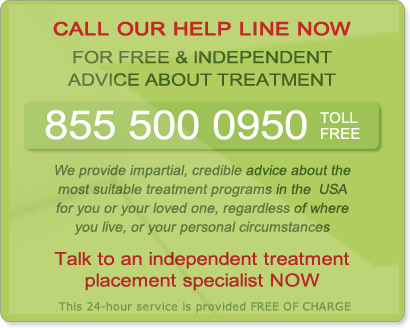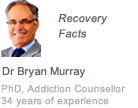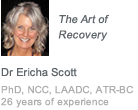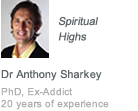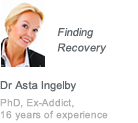Am I An Alcoholic?
Nobody becomes an alcoholic overnight. Alcoholism creeps up. The occasional drink with friends gradually becomes more than occasional. The quick beer to help unwind after work multiplies to become several beers. And now unwinding every night is necessary. That glass of wine enjoyed with an evening meal somehow turned into a bottle. Nowadays it’s followed by another bottle.
And so it goes. A pleasurable drink becomes an enjoyable habit. The enjoyable habit becomes a necessity. The necessity becomes a craving. And suddenly the fine line that separates heavy-drinking and alcoholism has been crossed.
It happens. We are only human. Each of us has different ways for coping with life’s pitfalls and celebrating its good times. There is any number of different reasons and circumstances that might lead us to succumb to alcoholism. But alcoholism is a disease, and the long-term effects are severely injurious to health and potentially fatal.
It does not have to be like this – if you think that you or someone you know might be an alcoholic plenty of help is available. You can be free of alcoholism and returned to a happy and fulfilling life, better able to cope with or avoid the situations that started you drinking in the first place.
It starts here – with you. Be true to yourself and answer the question honestly.
Am I an alcoholic?
If you answered yes and feel ready to kiss alcoholism goodbye, then you have shown true courage. There is a whole world of people waiting to help courageous people like you, who can give you the support, compassion and encouragement you need to beat alcoholism and win back your life.
If, on the other hand, you are unsure then maybe a few more questions and answers will help.
If I am an Alcoholic, why am I an alcoholic?
There are many reasons why someone might become an alcoholic. It does not follow that you are weak-willed or feeble-minded. You have a treatable disease. It is worth exploring how you might have picked up that disease.
Have you experienced an unexpected emotional shock?
The sudden death of a loved one, the loss of your job, involvement in an accident or being the victim of a crime – these are typical shocks that might begin the chain of events that leads from finding solace in alcohol to becoming an alcoholic.
Can you cope with the stresses and pressures of your everyday life?
Modern life can be stressful. You may have worries about financial or job security, poor health, terrorism or any of a number of situations or circumstances that negatively impact you on a daily basis. It is not unusual to rely on alcohol to provide a temporary escape from life’s pressures.
How good do you feel about yourself?
Perhaps you feel unworthy or inferior. Maybe you get the blues from time to time. Low self-esteem or depression call for a pick-me-up, but alcohol is itself a depressant and so begins a vicious circle of drinking to beat depression and becoming more depressed because of the drinking.
Do you hate to let down your drinking buddies?
You do not want to look like a ‘lightweight’ in front of your friends – you want to be part of the gang, so you match them drink for drink. And then maybe you drink some more just to impress them. You have got a taste for alcohol and it has got its hooks in you.
Does alcoholism run in your family?
Research increasingly suggests that alcoholism may be a hereditary disease. Mothers who drink during pregnancy are already preconditioning their baby for alcohol tolerance.
If you have answered these questions honestly, maybe you have discovered something that helped to make a decision.
Do I experience the symptoms of an alcoholic?
Alcohol dependency is harmful to health, and the continued intake of excessive amounts of alcohol can cause sufficient organ damage to cause death. There are a number of physical and psychological symptoms that in combination are typically associated with alcoholics. Consider the following:
Do you ever experience uncontrollable trembling, particularly in your hands?
Delirium Tremens (or the DTs) is a condition which afflicts habitual drinkers. Although characterized by the shakes, alcoholics suffering from the DTs may also hallucinate and experience feelings of anxiety or mental confusion.
Does your heart ‘race’ from time to time?
Long-term use of excessive alcohol eventually damages the heart’s muscle tissue, which may produce an irregular heartbeat. Sustained alcoholism vastly increases the chance of sudden death from heart failure.
Do you suffer from memory loss, temporary blindness, impaired balance and/or numbness in some of your limbs?
Slowly but surely, alcoholism destroys your brain cells. The longer you remain an alcoholic the greater the harm you are inflicting upon your brain.
Do you have frequent or constant stomach pain?
Excess alcohol eventually inflames your stomach tissue, giving rise to harmful conditions such as gastritis and the potentially fatal pancreatitis.
Is your sight changing ? What about your sense of smell?
Excessive alcohol consumption gradually causes brain cells to die. The effects of this type of brain damage are varied, but are known to impair the senses, sometimes leading to a loss of the sense of smell, or blindness. Balance may also be affected, and numbness of limbs may be experienced.
Do you experience untypical tendencies toward aggression, violence or suicide?
Alcoholism is responsible for a range of harmful psychological disorders. Others include sleeplessness, low self-esteem and loss of concentration.
If you can identify with any of these symptoms you should seek professional advice and help. Although some of the damage caused in the later stages of alcoholism may be irreversible, hope should never be lost. The sooner help is sought the lower the chance that alcoholism can inflict long-term harm.
Am I an alcoholic in the eyes of others?
The problem with alcoholism is that it does not affect the alcoholic alone. There are other people to consider, who may also be impacted as a result of the actions and behavior of the alcoholic. Think about the people you know, and answer these questions honestly:
Have your friends and relatives become ‘distant’ or less important to you than satisfying your desire for alcohol?
It is easy for an alcoholic to alienate the people dearest to them without even realizing it. Alcohol has become an all-consuming and controlling passion, pushing other considerations – even partners and close family – into second place.
Has anyone suggested to you that your drinking habit might be a problem?
Self-denial plays a huge role in maintaining any kind of addiction, but if someone has noticed that there’s a problem and cares enough to bring it to your attention then this ought to ring alarm bells.
Has your work performance suffered because of your alcohol intake?
Lack of concentration or the inability to focus on and perform well at a task might be noticed or commented upon by your employer. Ongoing deterioration in your performance at work due to alcoholism is likely to render you unemployable eventually.
Have you been aggressive or violent because of your drinking habits?
The uncontrolled feelings of aggression brought about by alcoholism contribute significantly to violent crimes, including domestic assault.
It is important to remember that an alcoholic is suffering from a disease. The disease controls the alcoholic’s actions and behavior. The alcoholic may be unconscious of their actions, and does not willfully intend to harm or distress the people around them. An alcoholic should not be judged by or for their condition. They need help, support and compassion and the chance to rid themselves of their affliction.
What if I am an alcoholic?
If you have reached the conclusion that you or someone you know and care for is an alcoholic and you are prepared to seek professional guidance and support to recover from alcoholism, there is hope. You can be helped and you can recover. You no longer need to live with the burden of alcoholism.
There are many self-help groups such as Alcoholics Anonymous, professional counselors and therapists, and treatment centers both ‘drop-in’ or residential, that can free you of alcohol dependence and help to ensure that you remain sober, clean and recovered. They are not there to judge or to criticize you, only to understand, help or support you. Seek help now and change your life so that the next time you ask yourself am I an alcoholic you can answer yes, but I am also sober, clean and living my life without alcohol.


